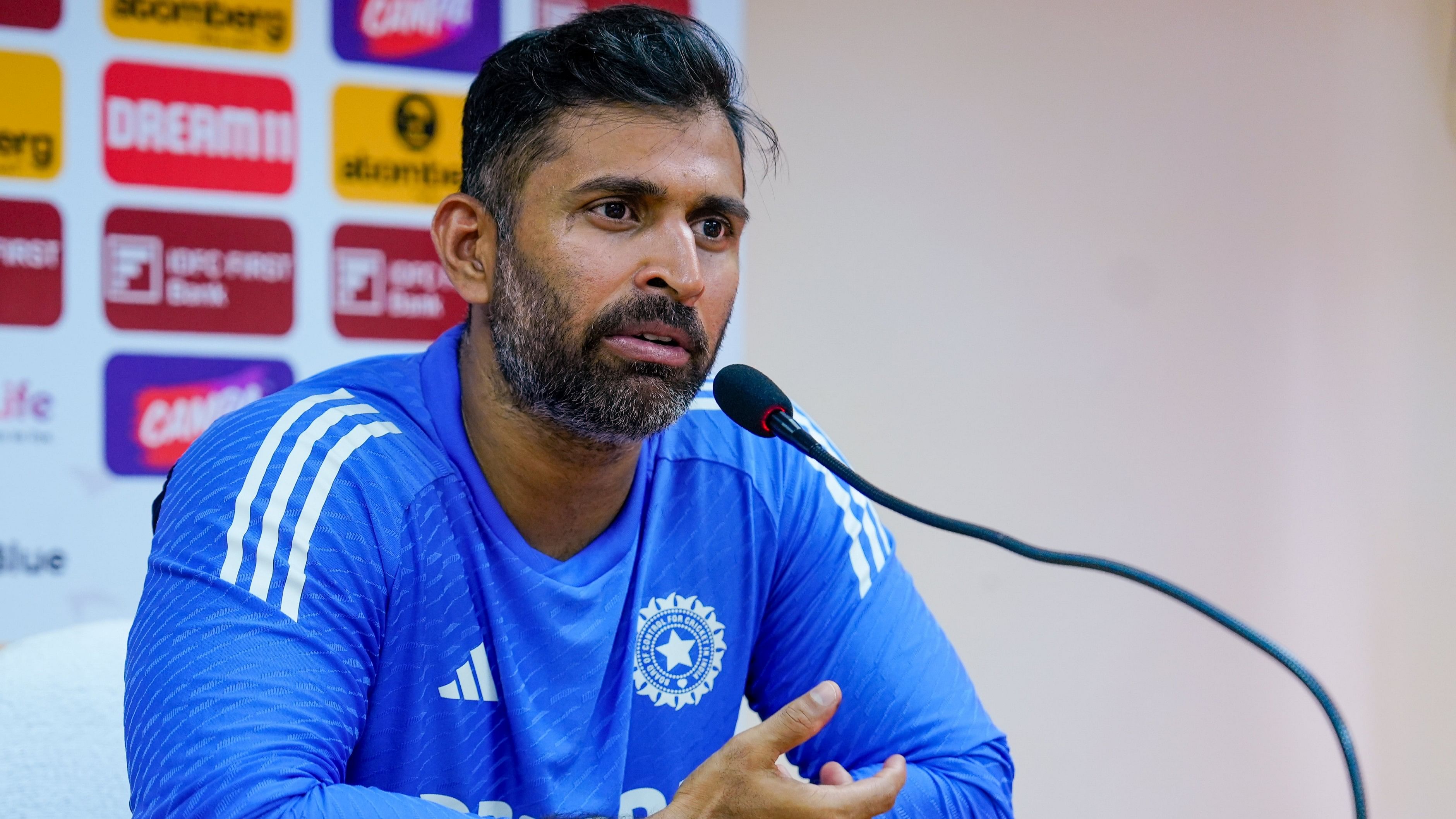
Indian batting coach Abhishek Nayar addresses a press conference.
Credit: PTI File Photo
Mumbai: India's assistant coach Abhishek Nayar on Wednesday insisted that they do not ask for tailor-made pitches in Tests and also backed out-of-form legends Virat Kohli and skipper Rohit Sharma, saying that they must be given "space and time to come back".
After suffering their first-ever Test series loss at home in 12 years, India will strive to salvage their pride when they clash with New Zealand in the third and final Test from Friday.
Playing on a track that assisted spinners, India lost the Pune Test by 113 runs. It is being speculated that the pitch at Wankhede Stadium here could again favour the spinners.
Nayar refuted suggestions that turning tracks are being made at the behest of the team.
"I wish we could curate pitches, but we don't. The curators do. Whatever we're provided with, we go on and play (whether) that'd be a pitch that seamed or a pitch that turned. We don't try and get conditions according to what we want," Nayar said on eve of of the final Test.
Both Rohit and Kohli are woefully out of form, and that has impacted team's performance.
Nayar said there is nothing wrong with the modern-day greats and all they need is just a bit of time and backing.
"I've seen nothing but love for them all over. When a top player, when someone who's been through the journey, goes through a lull, a lot of times it's about giving them their space and trusting that they will come back. They will put in the work,” he said.
"Everyone's worked really hard, everyone wants to do well, whether you're Virat Kohli or Rohit Sharma or even someone as young as Shubman Gill. The effort is there." "Sometimes, sometimes you've got to be a little patient, even with the greatest of players, and they can have tough times. I'm pretty sure sooner rather than later, we'll have more to praise about Virat Kohli and Rohit Sharma and everyone else as well," he said.
Nayar said it would be “harsh” to say the current Indian batters do not play spin as well as those in the past.
“That's a bit of a harsh statement. When you're trying to achieve something, there's always going to be a time when you take a certain dip because you're trying to play cricket in a different way and you're trying to push yourself out of the comfort zone,” he said.
“Sometimes the results don't go your way, but if you're patient enough and when that upward curve hits the team and hits an individual, then your purple patch lasts for really long.
“We're hoping that the transition that we're trying to have in terms of the mindset and the approach of the players in Team India, (given) that we're facing this dip now, but once we start hitting the upward curve, it'll be a long curve." Nayar said the dressing room atmosphere hasn’t changed over the last two matches.
“There are going to be times when you don’t do so well. When India lost the World Cup (final) in India, that was a low point in Indian cricket for everyone...
“In the same breath, a couple (eight) of months later, we were world champions. Coming back is always a great journey. That's how stories and legacies are made.
“Hopefully we can be part of creating something as special as that in the future, but the atmosphere is great. Still a lot of jokes and bubbly cricketers in the dressing room. You'll see our (training) sessions (are) filled with fun and nothing has changed.
India have collapsed thrice so far in the series, starting with 46 all-out for lowest Test innings total at home in Bengaluru. After that, India made 156 in the first essay of Pune Test and crumbled to 245 all-out from 81/1.
Nayar refused to read much into it and said, “I wouldn't call it a collapse, when you lose wickets in a bunch or when we pick wickets in a bunch — like we did in the last game as well, where we got seven wickets in 51 runs — I think that tends to happen in this game of cricket.” “Sometimes it is the mindset. It may not be perceived from outside as trying to be aggressive or trying to have intent, but intent is not necessarily swinging at the ball. Intent is more about your approach towards the ball.
“Is it worrying? Well, the only way we look at it is how we can get out of it. That's our thought process (and) mindset.”